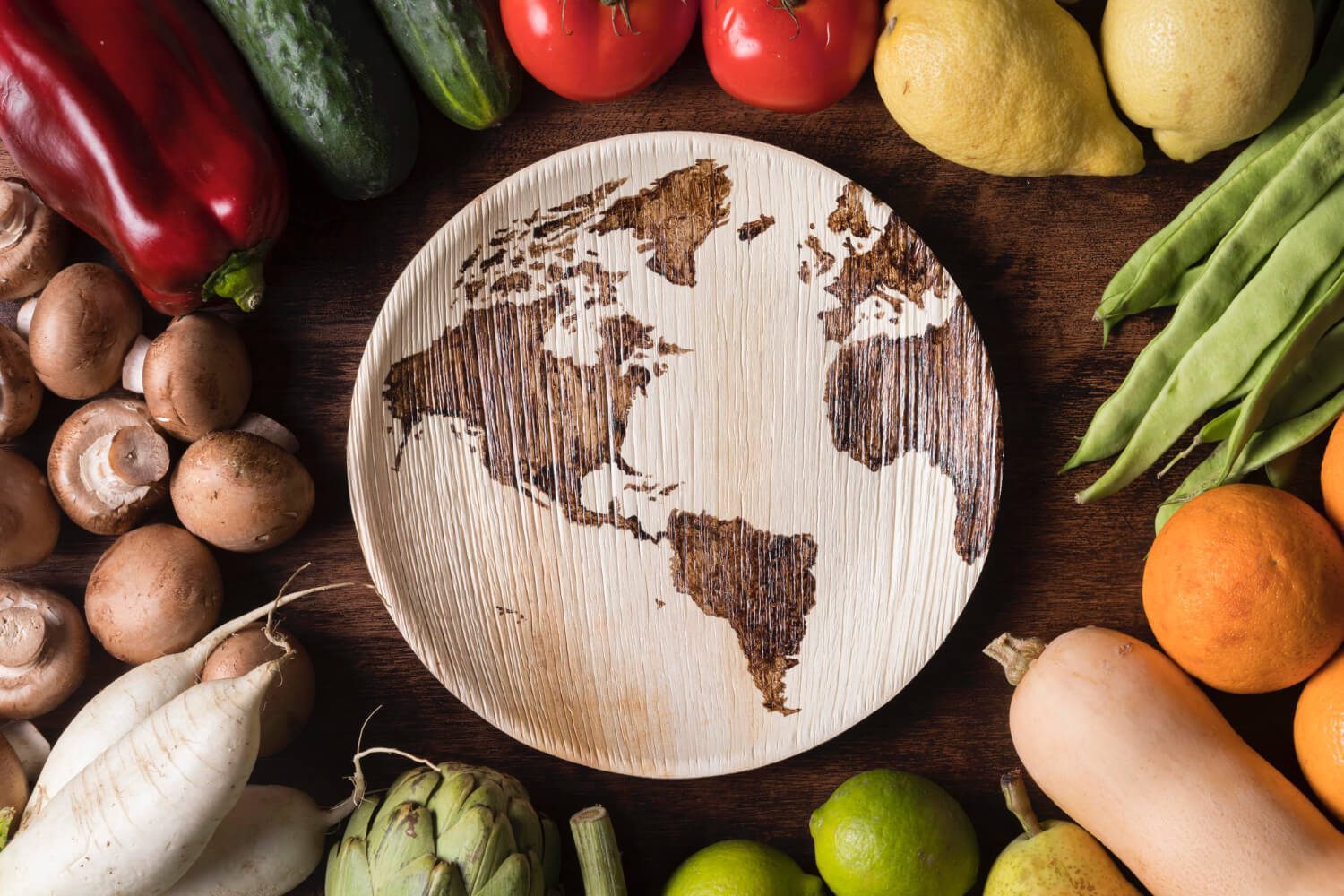Blog
How to Eat Sustainably in 2023 and Beyond

Melissa Mitri, MS, RD, is a registered dietitian nutritionist, weight loss specialist, and expert health writer with over 15 years of experience in the health and wellness industry. Melissa has worked in a variety of healthcare settings where she helps clients improve their diet through an individualized approach.
The concept of sustainable eating has received increased attention in the past few years. If you’re wondering what sustainable eating is and how you can incorporate it into your life, we’ve got you covered.
Your eating habits today not only affect your day-to-day health, but your future health, well-being, and the health of the environment around us. By making more conscious food choices, we can promote a food system that is sustainable for years to come, supporting our health and longevity in the process.
Every March is designated as National Nutrition Month®, and this year’s theme is “Fuel for Your Future.” In honor of this nutrition month theme, this article will explore the eating habits that fuel your future health and the health of the planet.
Keep reading to learn what sustainable eating means, why it matters, and how you can build sustainable eating habits in 2023 and beyond.
What is Sustainable Eating?
Sustainable eating is about making food choices that promote environmental sustainability, social responsibility, and economic stability. As a Registered Dietitian, I also consider sustainable eating to encompass a way of eating that you can stick to and make into a lifestyle.
But many times, I see my clients trying to eat in a way that gives them quick results but not necessarily in a way that fuels their future health.
Sustainable eating may involve some or all of these habits:
- Choosing locally sourced and seasonal foods.
- Reducing meat consumption and opting for more plant-based protein sources.
- Minimizing food waste and packaging waste.
- Choosing sustainably produced foods, such as those that are certified organic, fair trade, or use sustainable farming practices.
- Supporting local food systems and small-scale farmers.
- Considering the carbon footprint of food choices, and choosing lower-impact options.
Sustainable eating is about making conscious choices that support your health goals, while also supporting the long-term sustainability of food systems.
Benefits of Sustainable Nutrition for Your Health
Practicing sustainable nutrition habits has numerous health benefits and can reduce your risk of chronic disease.
Here are some of the key benefits:
1. Improved nutrient intake
Sustainable foods are typically highly nutritious, plant-based foods such as fruits, vegetables, legumes, and whole grains. These foods are nutritional powerhouses packed with fiber, vitamins, and minerals.
And especially when it comes to fiber, most of us are not getting enough of it.
2. Reduced risk of chronic diseases
A diet high in sustainable plant-based foods and low in processed and animal-based foods has been linked to a reduced risk of chronic diseases such as heart disease, diabetes, and certain types of cancer.
Research shows it may even help you lose weight and preserve your cognitive and mental health.
3. Increased energy levels
A locally sourced, primarily plant-based diet can provide more sustained daily energy. Sustainable foods are packed with complex carbs and fiber, which provide a slow, steady release of energy to your brain and body.
If you want to improve your longevity, support your long-term health, and protect the environment, sustainable nutrition matters.
Benefits of Sustainable Eating for The Environment
Here are the top 3 benefits of sustainable eating for the environment.
1. Reduced greenhouse gas emissions
You can do this by choosing foods with a lower carbon footprint, such as plant-based foods, locally sourced foods, and foods produced using sustainable farming practices. This helps reduce greenhouse gas emissions that contribute to climate change.

2. Preservation of natural resources
Sustainable eating also involves choosing more foods produced under sustainable farming practices that preserve more natural resources such as water, soil, and biodiversity. This helps maintain the health of our ecosystems and environment.
3. Reduced food waste
Eating sustainably also involves minimizing food waste by planning meals, composting food scraps, and utilizing leftovers. Not only does this help lower your overall food bill, but reduces greenhouse gas emissions that result from landfill food waste.
Adopting these simple 3 habits as much as possible can help preserve our planet’s future health.
Building Sustainable Eating Habits
If your eating habits feel inconsistent and scattered right now – don’t stress. Here are a few key ways you can start building sustainable eating habits today.
- Practice mindful eating – A common habit I see is that many people ignore what or how much they’re eating. One of my clients who struggled with this started practicing mindful eating by tracking her food and mood habits, and how she felt before, during, and after eating certain foods.
Doing this made her more conscious of her food choices, and helped her be more in tune will the types of foods that made her feel her best. You can do this too by trying to slow down your eating and journaling how you feel afterward.
- Choose sustainable food sources – One way to do this is by swapping 1-2 meals per week with plant-based meals containing beans, peas, and whole grains.
- Reduce food waste – You can do this by preserving leftovers and using food scraps and the skin of food for future recipes.
- Meal planning and preparation – Planning ahead not only saves you time, but it results in more nutritious meals and less food waste. It also saves you money because you know exactly what you’ll need from the store.
- Supporting local and sustainable food systems – Scope out your local farmer’s markets or a family-owned grocery store in your community. Local food doesn’t just taste better – it’s more nutritious and better for the environment too.

And don’t feel you have to change everything overnight – start with one of these new habits or where you feel you may need the most practice. It’s not easy changing your eating habits, so take your time and start with one change at a time.
Bottom Line
To celebrate National Nutrition Month® 2023, start building the small habits now that fuel your future health. This starts with sustainable eating habits that preserve your health and the health of the entire planet.
Follow the aforementioned tips now to preserve your health in 2023 and beyond. Remember to always set achievable goals, seek support from others, and celebrate your sustainable eating successes along the way.
References
- https://www.ars.usda.gov/arsuserfiles/80400530/pdf/dbrief/12_fiber_intake_0910.pdf
- https://www.ncbi.nlm.nih.gov/pmc/articles/PMC3662288/

Melissa Mitri, MS, RD, is a registered dietitian nutritionist, weight loss specialist, and expert health writer with over 15 years of experience in the health and wellness industry.
Melissa has worked in a variety of healthcare settings where she helps clients improve their diet through an individualized approach.
- Latest Posts by Melissa Mitri, MS, RD
-
Planning Healthy Meals On A Budget
- -
5 Worst Foods For Arthritis
- -
5 Easiest Fruits and Vegetables to Grow, and Which To Buy
- All Posts
